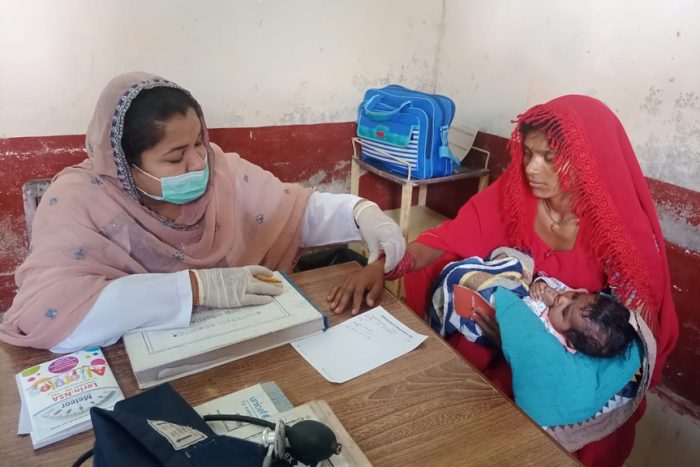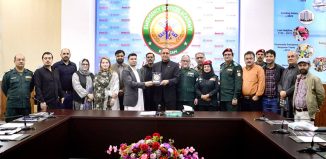Improving Access to Maternal Healthcare for remote and underprivileged communities in rural Sindh
Twenty-three year old Diya lives in Ramchand Khatri village of Umerkot which is located at a five kilometres distance from Community World Service Asia’s Maternal, Neonatal and Child Health (MNCH) centre in the same district. Diya first visited the MNCH centre with complains of nausea, vomiting, and weakness in October last year.
After thoroughly examining Diya, the lady health visitor at the centre advised her to take a pregnancy test, which came out to be positive. Diya was expecting her first child. “My haemoglobin was low at 9.0 when I first visited the MNCH. The medical officer advised for antenatal care (ANC) and prescribed multivitamins to me to address the weakness and normalise my haemoglobin levels. My ANC card was created, and I was scheduled for a follow-up appointment in one week.”
The following week Diya went for her follow-up examination at the MNCH where the doctor further prescribed Monofer Injections for her increasing weakness and low haemoglobin levels. “My mother-in-law was concerned about my well-being. But her anxiety was reduced when she accompanied me to the MNCH to observe how effectively the medical personnel attended to my needs and treated me.”
Ramchand Khatri is a remote village in Umerkot, with limited livelihoods opportunities and no immediate access to education, electricity, safe drinking water, health facilities or fully constructed roads. “My husband works as a farmer. During the harvest season, my husband receives his share of the crop after cultivation,” shared Diya. “Other days, we survive on the loan we take from the landowner my husband works for. Sometimes when he is able to find other labour work, he is able to earn a small income. Our total monthly income barely adds up to PKR 8000 (Approx. USD 51). Therefore, we have not been able to set aside any funds for healthcare.”
Diya has been going to the health centre for her antenatal care on a regular basis. She is in her last month of pregnancy now. “We are unable to afford good healthcare services offered at the city hospital so this is a blessing for us,” Diya’s husband said, expressing his satisfaction with her treatment at the MNCH. “We were concerned about how we would be able to afford and provide good healthcare to Diya as we found out about our pregnancy. Our concerns, however, dissolved soon after we visited the MNCH. Diya’s haemoglobin level improved and normalised as a result of her regular antenatal care appointments. The medical team at the centre have treated Diya proactively and the baby and her appear to be in good health.”







